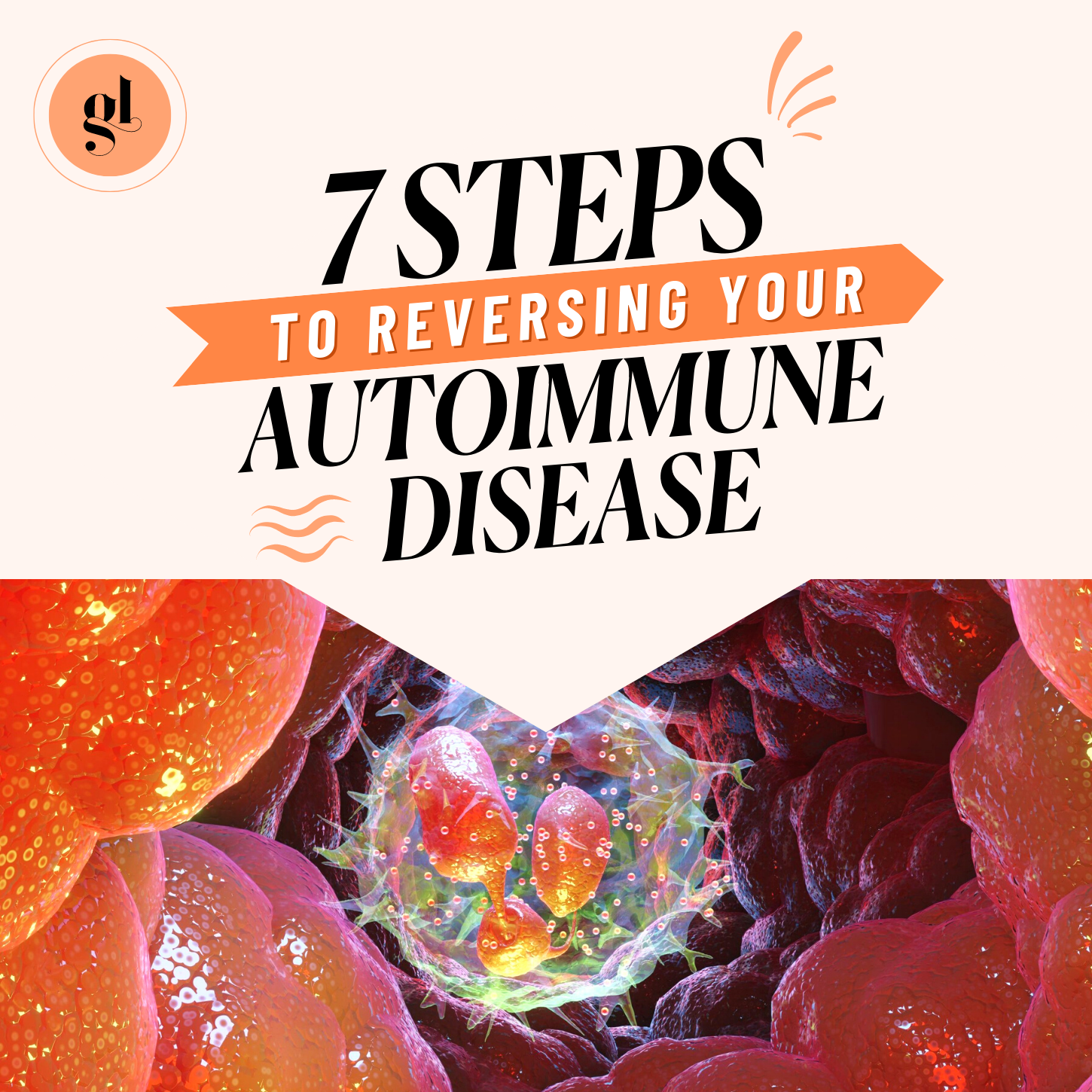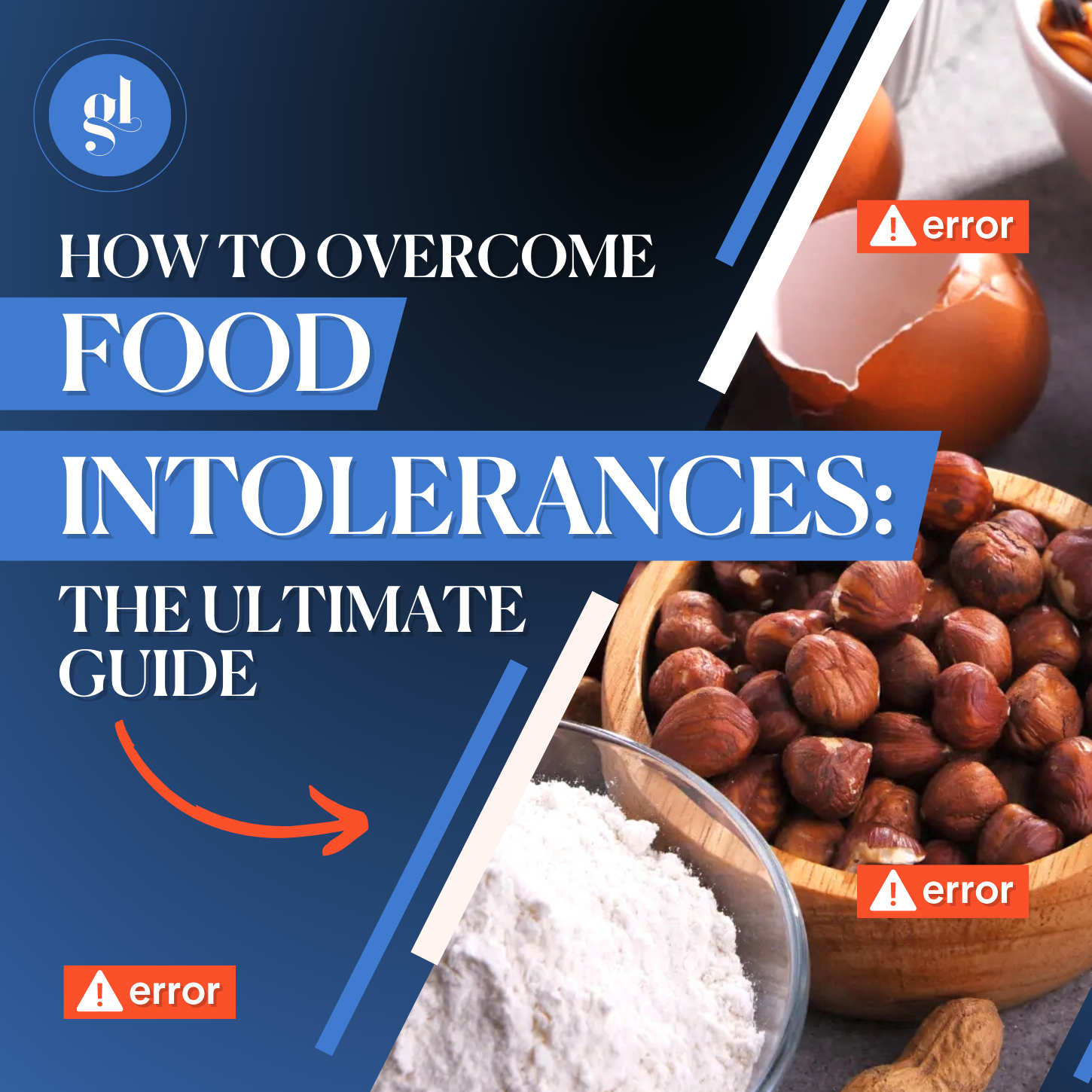Transcript: 7 Steps to Reversing Your Autoimmune Disease
Is gluten bad?
Gluten has been in the spotlight for a while as one of the most harmful foods for our gut. While not everyone needs to avoid gluten, if you have an autoimmune disease, the best and first thing you should do is to completely remove gluten from your diet (at least until your inflammation is under control unless of course you are celiac, where gluten will never be your friend).
“But why?” you ask.
For two reasons.
First, when you consume gluten, it travels through your stomach to your small intestine where it triggers the release of zonulin. Zonulin is a protein that signals the tight junctions of your intestinal wall to become porous, leading to leaky gut. So gluten leads to an increase in Zonulin which can cause leaky gut.
Secondly, every time your body is exposed to an invader (in this case gluten), your immune system memorizes its structure so that it can recognise it in the future and develops an adequate dedefense to it. The bad news is that gluten happens to be structurally similar to a number of your own body’s tissues. The immune system then registers your own tissue as an invader and attacks itself.
So what about a packet of chips now and then or a piece of bread once a week?
Unfortunately, even if you have less than 1/8 thumbnail of gluten, it has the ability to activate the inflammatory cascade which will last for 2-6 months! So even if you only ate gluten four times per year, you would be in a state of chronic inflammation year-round!
Before you think dooms day has arrived though, there is good news though. With so many people needing to avoid gluten, many companies have gone to great lengths to provide gluten free options. Some supermarkets even have dedicated gluten-free sections! There are plenty of delicious gluten-free options out there and many foods you can substitute with in your cooking to avoid using gluten.
Another important step to take if you have an autoimmune disease is to follow an anti-inflammatory diet.
Inflammation is strongly linked to not only autoimmune flare-ups but also to the development of autoimmunity in the first place. Excessive animal protein, simple sugars, gluten, dairy and food additives increase inflammation and can imbalance immunity.
Focus instead on foods that reduce inflammation such as organic fruits and vegetables, adequate clean proteins like legumes and quinoa and foods high in essential fatty acids such as olives, avocados, nuts and seeds.
Because addressing gut health is the cornerstone of autoimmune treatment, repopulating your gut bacteria with probiotics in both food and supplement form is recommended. Crack open that sauerkraut or kimchi or sit down with an afternoon kombucha and make those good guys in your gut happy.
Scientists have linked critically low vitamin D levels with autoimmune diseases like Lupus and Multiple Sclerosis. Vitamin D is well-known for its role in regulating the immune response.
So, take 20-30 minutes for your morning break and sit down with a book in the sun. Let those warm rays hit your skin, just be sure not to burn. You could also look at supplementation if you live in a country like the UK or Finland where the sun only makes an appearance for two days in the year.
Another important step in treating your autoimmune disease is to reduce your environmental toxin exposure.
Both exposure to environmental toxins (such as pollution, heavy metals, pesticides and recreational drugs) as well as toxins produced by the bacteria within your gut can activate the immune system and cause inflammation.
There are a few things you can do to mitigate these exposures:
- Aim to buy organic foods as much as possible
- Use a water filter for your drinking water
- Purchase only natural household cleaning products and personal care products
Don’t make excuses when it comes to exercise. Exercise has been shown to regulate and strengthen immune health. Aim to do moderate intensity exercise for at least 40 minutes per session, 4 times per week. If your mind is already resisting, get out for a walk every other day. Start somewhere, no matter how small. Over time, you will build habits your body will thank you for and you will be able and eager to do more and more.
Last but not least, learn how to manage your stress effectively. As stress causes inflammation in the body and dampens the immune system, it is important that you have some strategies that help to alleviate its impact. This could mean going for a walk, doing some yoga, journaling, exercising or even getting a massage or taking a relaxing bath.
So now you’re armed with all this knowledge on how to fight your autoimmune disease, but there’s one more thing you should know when it comes to turning off the autoimmune switch.
Food sensitivities are one of the major factors that cause inflammation and one which often goes unaddressed. They can wreak havoc on the integrity of your gut wall and create an environment ripe for inflammation and autoimmunity.
But knowing what foods you react to is not always easy to identify. You may feel bloated and sick in your stomach on a Wednesday and think “well what did I have for breakfast this morning?” But it may actually be Monday’s or Tuesday’s meals that are responsible. If you want to not only learn how to identify the culprits, but also how to overcome food intolerances, don’t ignore this video here.














What Do You Think? Comment Below: